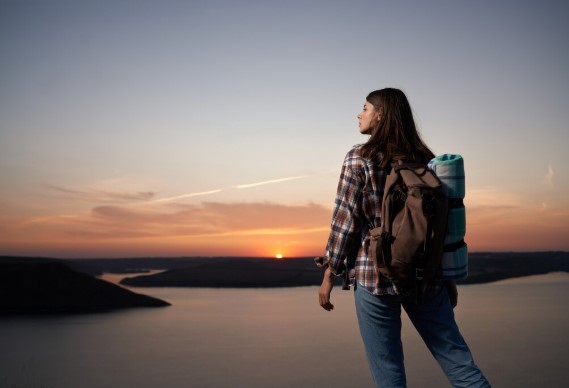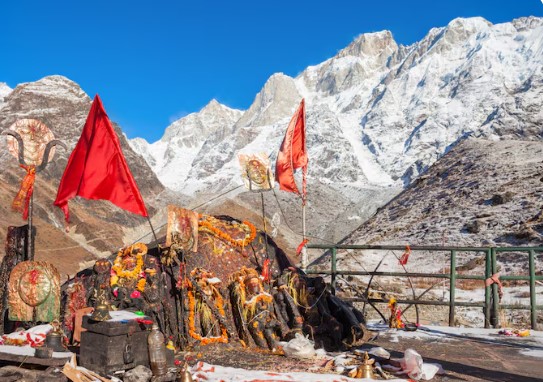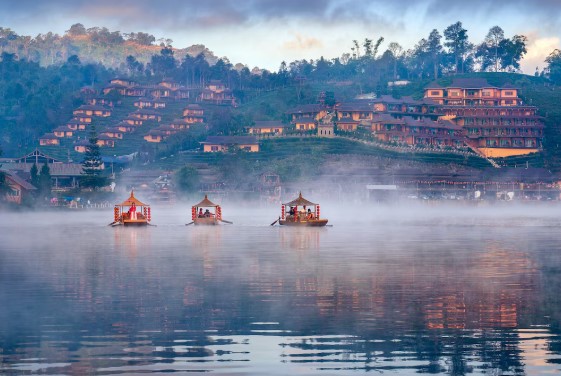In recent years, solo travelling has shifted from being a niche concept to a widely embraced form of exploration and self-discovery. As a professional writer committed to crafting helpful travel content, I recognise that travelling alone presents both exciting opportunities and distinct challenges. Whether you are embarking on your first solo trip or already seasoned, thoughtful preparation and awareness make the difference between a stressful journey and one that is fulfilling, enriching and safe. This article draws on travel research, first-hand reports from solo travellers and established guidance to equip you with the knowledge you need to travel alone with confidence.
1. Clarify Your Purpose and Style of Solo Travelling
1.1 Why You Want to Travel Alone
Before you set off, ask yourself: what am I hoping to gain from this solo adventure? Perhaps you want quiet reflection, cultural immersion, meeting new people, or simply complete freedom of schedule. Understanding your motive helps shape the kind of trip you’ll take. According to solo travel advice, those who travel alone with intention often gain more from the experience.
1.2 Defining Your Approach
Solo travelling can take many forms. You might prefer backpack-style hosteling and spontaneous activity, or perhaps you favour more comfort and organised tours. Some travellers look for social interaction, others relish solitude. Reflecting on your travel style in advance helps tailor choices—from destination to accommodation—to suit your preferences rather than adopting a “one-size fits all” mindset.
1.3 Setting Realistic Expectations
Going alone doesn’t automatically mean everything will flow perfectly. Delays, language barriers, loneliness, or safety hurdles can appear. Research emphasises the importance of flexibility: travellers who adapt to change, rather than expect everything to go smoothly, often have better experiences.
2. Destination Research & Logistics
2.1 Selecting a Suitable Destination
When you’re travelling solo, destination choice matters. Sources recommend starting with a place that has favourable safety indicators, good infrastructure and some familiarity to reduce risk. Consider whether you are comfortable with language differences, cultural norms, and the level of available resources.
2.2 Research Local Culture, Norms and Scams
One of the challenges of solo travelling is navigating unfamiliar environments by yourself. The travel experts underline the value of researching common local scams, local transport safety and cultural expectations. Further, learning a few basic local phrases can show respect and help in tricky situations.
2.3 Planning the First Few Days
When you arrive at your destination alone, things may feel more intense than if you were with a companion. Experts advise planning key logistics for the first few days—such as where you’ll stay, how you’ll arrive, and what major transport links look like—before branching out into free-form exploration. Allocating this “settling in” period allows you to gain foothold and energy to enjoy the rest of the trip.
2.4 Managing Budget, Insurance and Documentation
A crucial part of preparation is the practical side: carrying valid travel documents, travel insurance that covers illness or cancellation, and a realistic budget. One blog recommends treating budget not as “what you’d like to spend” but “what you can afford”. By being clear about finances and securing yourself properly, the mental burden of travelling alone reduces significantly.
3. Safety & Well-being While Solo Travelling
3.1 Awareness and Street Smart Behaviour
Solo travellers must take extra care of personal safety since you don’t have a travel partner to rely on in real time. Advice includes carrying a map discreetly, walking purposefully, and avoiding looking obviously lost or distracted in unfamiliar areas. Being aware of your surroundings—especially at night or in remote zones—is a core part of safe travelling.
3.2 Staying Connected and Sharing Your Itinerary
Even though you’re travelling solo for independence, staying in touch with someone back home or sharing your plans adds a layer of security. The guidance suggests sending key details like accommodation addresses, travel plans, and check-in times to a trusted person.
3.3 Health, Travel Insurance and Emergency Preparedness
Health risks, accidents or sudden illnesses can derail a trip—especially when you’re alone. Ensuring you have travel insurance that covers medical evacuation or repatriation is sensible. Also, know how to reach local emergency services and keep a record of your embassy/consulate contact. Some travellers carry backups of vital documents digitally.
3.4 Managing Loneliness, Stress and Mindset
Being alone doesn’t mean being lonely, but at times solo travelling can bring moments of vulnerability and self-doubt. Recognising this and having simple coping strategies (such as journaling, choosing social accommodation, or intentionally scheduling a pause) helps keep your journey positive. A mindful approach boosts not just safety but overall enjoyment.
4. Accommodation, Transport & Daily Setup
4.1 Accommodation Choices for Solo Travellers
When travelling alone, accommodation choices can influence how safe and socially connected you feel. Some travellers prefer hostels where they can meet others, dorms or shared rooms—while others want private rooms for solitude. According to one site, hostels remain a good way for solo travellers to meet people and save money. Whatever you pick, make sure it’s in a safe, well-located neighbourhood with accessible transit.
4.2 Reliable Transport: Getting Around
Solo travellers must think ahead about how they’ll move within and between destinations. Is public transport available and safe? Are there reputable taxi or rideshare apps local to the area? One expert recommends installing rideshare apps prior to arrival and studying how the local transit works. For longer trips, developing familiarity with train or bus schedules and station layout before your departure is helpful.
4.3 Daily Routines: Balance Structure & Spontaneity
A helpful rhythm for solo travelling blends pre-planned structure (for key activities) with flexibility (for spontaneity). For example: plan your arrival, one major activity next day, then leave space for unplanned experiences. As one travel article says, your loose plan should allow for “down time you really want”. Building in downtime matters because when you’re alone, constant decision-making can become draining; pacing yourself helps preserve energy and enjoyment.
5. Socialising, Culture & Personal Enrichment
5.1 Embracing Local Culture and Hidden Gems
One of the richest benefits of solo travelling is immersion into the local culture on your own terms. That means more freedom to explore neighbourhoods, attend local events, sample food, and engage with residents or fellow travellers. One travel blog emphasises “find the hidden gems” by wandering away from tourist areas. A willingness to engage with locals often opens doors to memorable, unplanned experiences.
5.2 Dining, Solo Activities and Meeting Others
Eating alone or engaging in activities solo can initially feel awkward, but many travellers report freedom and satisfaction from doing so. For example, choosing a quiet café, joining a group walking tour or cooking class helps integrate social connection without needing a companion. Also, staying open to meeting fellow travellers or participating in host-organised events helps reduce loneliness and enrich your trip.
5.3 Personal Growth: Learning, Reflection & Confidence
When you travel alone, you face challenges that you wouldn’t with a travel partner—and that is a core advantage. Solo travelling pushes you to rely on yourself, make decisions, adapt to surprises, and reflect on experience. The result is a growth in confidence, problem-solving skills and self-understanding. Embracing this mindset transforms a lone trip into a personal milestone rather than just a holiday.
6. Packing, Technology & Financial Management
6.1 Packing Smart for Solo Travel
When you’re on your own, every item you pack must earn its place. Key advice for solo travellers includes packing light (since handling large luggage solo can be cumbersome), bringing versatile clothing and preparing for environment-specific conditions (weather, terrain, culture). Also, consider dividing your cash/cards into separate places in case of theft—this is especially important when you’re on your own.
6.2 Technology Use: Tools & Precautions
Technology can be a great enabler for solo travelling—but also a risk if mis-used. Using GPS, rideshare apps, local language translation tools and digital maps helps. On the flip side, posting live location publicly or using flashy equipment can attract unwanted attention. One expert recommends turning off public location sharing and consulting maps in cafés rather than in the street.
6.3 Financial Management and Staying on Track
Solo travellers are responsible for all the logistics themselves—including budget tracking, spending decisions and unexpected costs. Setting aside a cushion for emergencies, paying using cards when safe to do so and keeping a small amount of local cash in a secure place helps. Researching local cost norms and having backup payment methods adds peace of mind.
7. Mindset for Enjoyment and Resilience
7.1 Cultivating Openness and Flexibility
Perhaps the greatest asset of solo travelling is the freedom to change your plans, linger longer somewhere, or pivot to something unexpected. Travellers who hold rigid agendas may feel frustrated when things deviate; those who stay open, curious and adaptive often enjoy richer experiences.
7.2 Embracing Solitude and Being Present
Rather than viewing solo travel as “just a vacation”, you may see it as time to connect with yourself. Choosing to pause and observe, rather than always moving, enhances the quality of your travel. A mindful approach—being present in café, on a walk, or simply watching the world go by—makes the journey more meaningful.
7.3 Learning from Mistakes and Bumps
No trip goes perfectly. Especially when you travel solo, you may face setbacks: transit delays, miscommunications, loneliness. Accepting that and treating them as learning moments rather than disasters keeps your outlook positive. This type of resilience distinguishes truly fulfilling solo travel experiences.
Conclusion
Solo travelling invites you into a space of independence, self-discovery and authentic connection with the world. By clarifying your motives, researching your destination, prioritising safety and well-being, choosing accommodation and transport wisely, cultivating enrichment through culture and social interaction, managing your pack and finances thoughtfully, and nurturing an open yet resilient mindset, you equip yourself for a deeply rewarding journey. Travelling alone does not mean travelling unprepared—it means travelling deliberately, confidently and with an eye for growth. My hope is that you step into your next solo adventure with curiosity, courage and the tools you need to make it memorable on your own terms.



